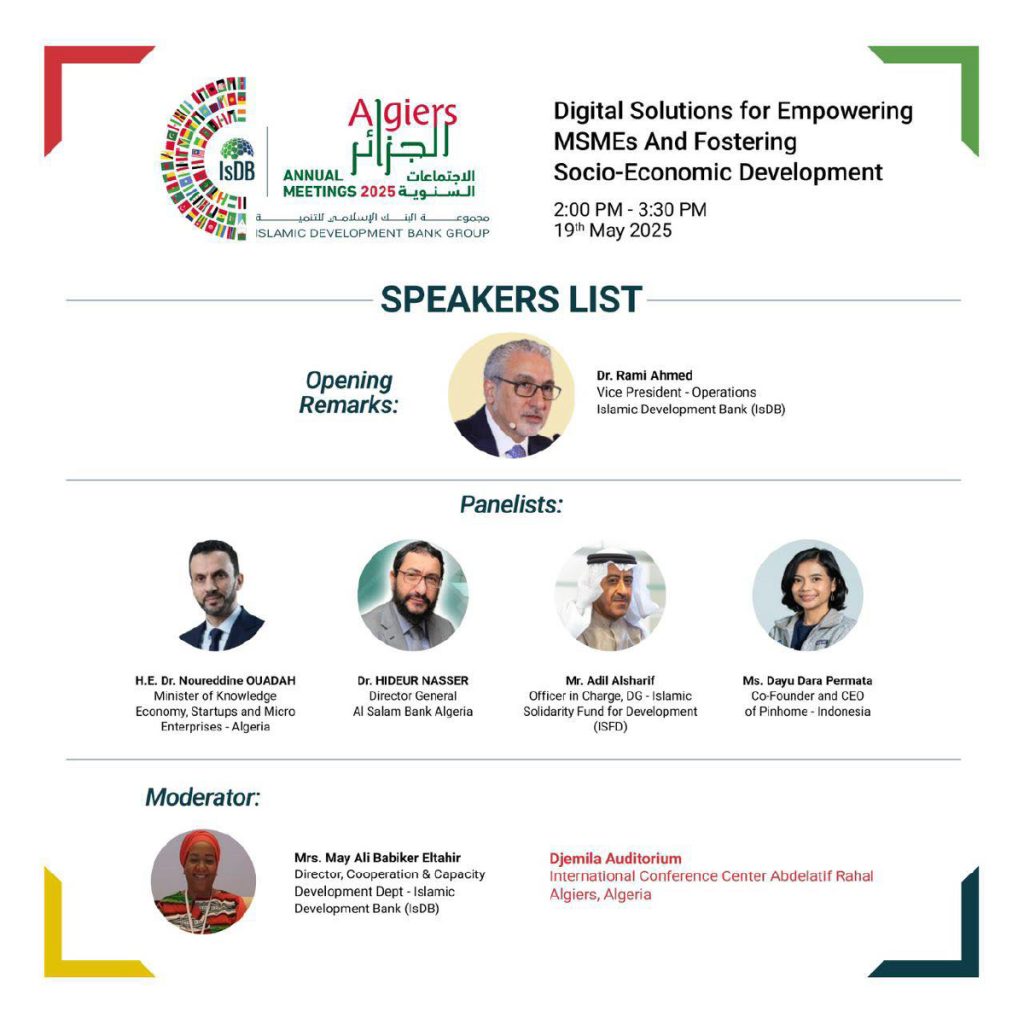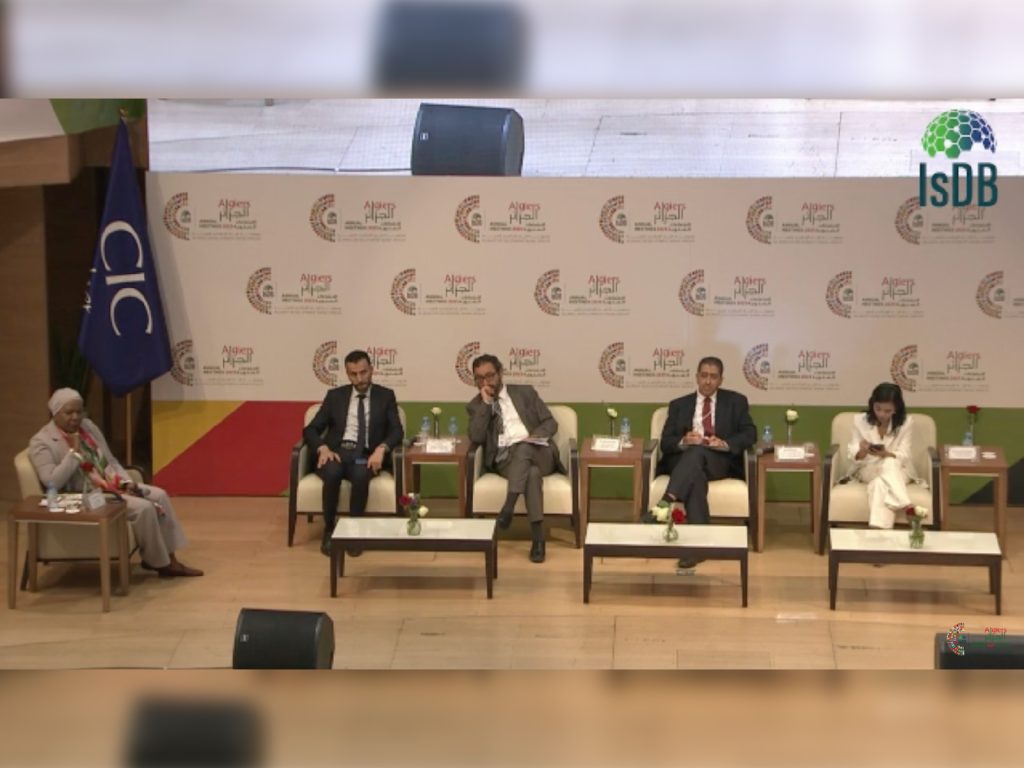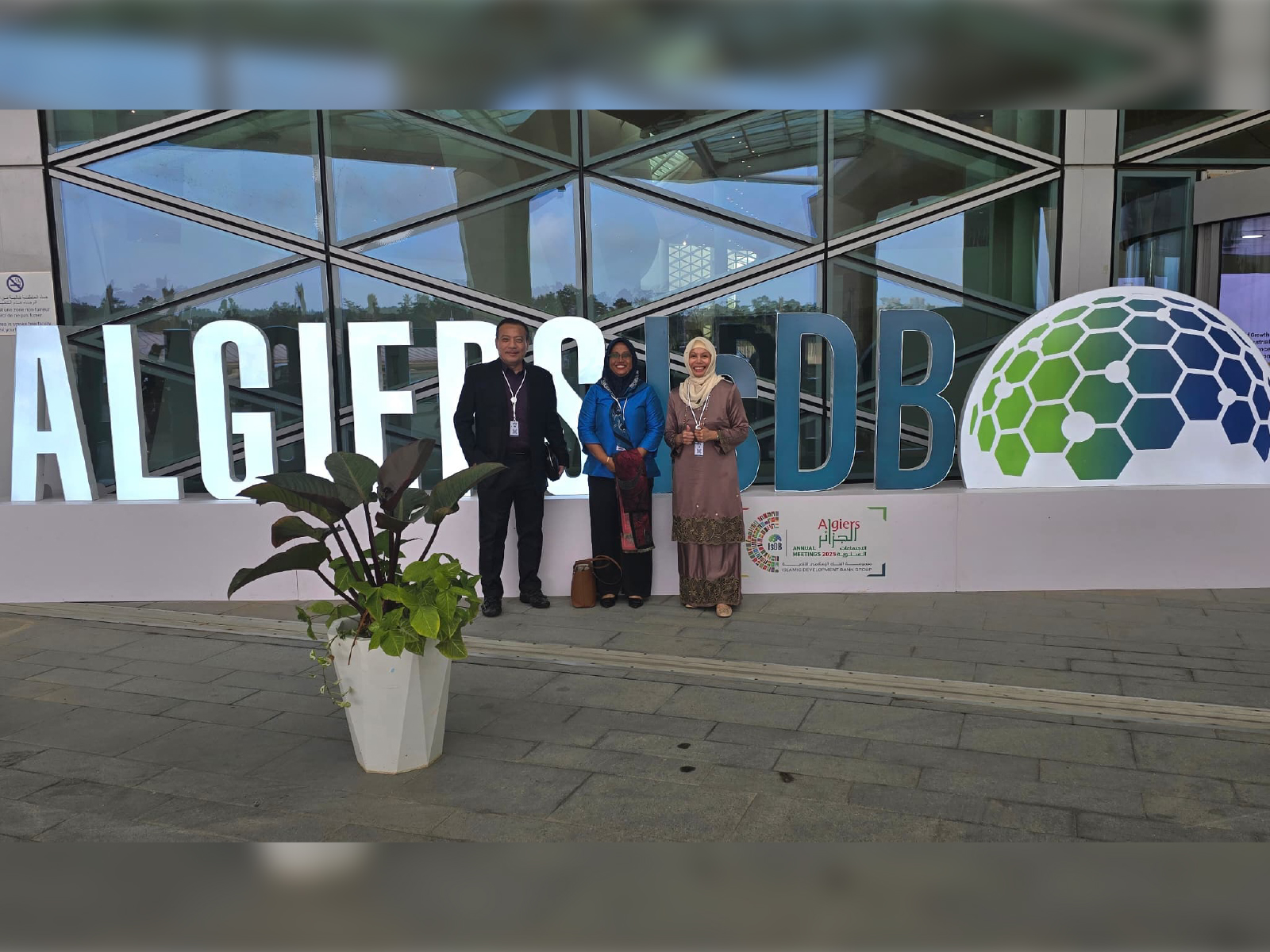By Intan Sue | 15th July 2025
At the recent Islamic Development Bank (IsDB) Annual Meeting in Algiers, a key side event “Digital Solutions for Empowering MSMEs and Fostering Socio-Economic Development” highlighted the transformative power of technology in supporting small businesses. Dr Rami Ahmed, Vice President, Operations at the IsDB, delivered an inspiring address that strongly aligns with Serunai Commerce’s mission to build a digitally enabled Halal ecosystem.
The Imperative of Digital Enablement for MSMEs

Dr Rami emphasised that financial institutions and development partners must go beyond traditional funding and act as active enablers of the digital ecosystem. He stressed the need for governments to invest in foundational digital infrastructure, e-governance systems, and innovation-friendly policies, while development banks like IsDB provide both financial and technical support to help MSMEs adopt new technologies.
In this context, Serunai Commerce’s contributions are more relevant than ever. As a Malaysia-based technology company specialising in digital Halal infrastructure, our work through the IsDB Reverse Linkage programme places us at the heart of this transformation. We are proud to support MSME development and digital capacity building in both member and non-member countries through our ongoing and upcoming projects in Indonesia, Uganda, Fiji, Bangladesh, Jordan, Senegal, and Algeria.
These initiatives not only enable digital Halal certification and traceability but also equip local businesses and certification bodies with the critical tools needed to thrive in a digitally connected economy. Through the deployment of our digital tools namely Certification Bodies Master System (CBMS™), Digital Halal Assurance System (VH SMART™), our Blockchain technology Halal Digital Chain (HADIC™), Verify Halal™ app for consumers, and other platforms, we provide scalable digital solutions tailored for MSMEs, allowing them to meet compliance standards, access new markets, and unlock financing opportunities.
Artificial Intelligence and the Risk of Being Left Behind

With rapid advancements in AI, Dr Rami warned that MSMEs risk exclusion if they fail to adapt. His words were particularly striking:
“Empowering MSMEs through digital solutions is not just a technological imperative, it is a development imperative. Otherwise, we miss the boat on leapfrogging.”
At Serunai Commerce, we are addressing this challenge by embedding AI-driven Halal verification, blockchain-based traceability, Halal Assurance Systems, and IoT technologies into our platforms. Our technology, much like IsDB’s initiatives, ensures that small businesses, particularly in emerging Halal markets, can compete globally with the right digital tools.
Dr Rami also highlighted the importance of modernising MSMEs, connecting them to markets, and building capacity to ensure they are not left behind. These goals are central to Serunai Commerce’s mission. Our collaboration with national authorities and Halal certification bodies—supported by the IsDB Reverse Linkage modality and strategic partners like JAKIM directly aligns with the values expressed in his address.
Collaboration: The Only Path to Inclusive Growth
A recurring theme in Dr Rami’s speech was the need for stronger partnerships between governments, financial institutions, and the private sector. He highlighted IsDB’s Herfati Programme and Technology Deployment Cooperation as successful models for modernising MSMEs through joint efforts.
Similarly, Serunai Commerce works closely with Islamic banks, Chambers of Commerce, and policymakers to foster an inclusive digital Halal economy. Our upcoming projects in Bangladesh, Jordan, Senegal and Algeria reflect this collaborative approach—ensuring no business is left behind in the digital transition.
Importantly, Serunai Commerce’s work under the IsDB Reverse Linkage modality is a practical example of South-South Cooperation in action—where countries within the Global South collaborate by sharing technical expertise, experience, and innovation to overcome shared development challenges by devising customised solutions. By transferring Malaysia’s digital Halal ecosystem expertise to partner countries, Serunai Commerce plays a pivotal role in promoting equitable development through peer-to-peer capacity building.
Why This Matters for the Global Halal Economy
Dr Rami emphasised that development institutions must move beyond funding to become enablers of systemic change. For the US$5 trillion [1]Halal industry, where fragmentation and inconsistent standards persist, this means prioritising:
- Digital Halal Assurance
Leveraging AI and blockchain for real-time compliance monitoring. - Streamlined Certification
Modernising antiquated processes through e-governance solutions. - Capacity Building
Equipping regulators and businesses with tools to navigate digital transitions.
As Dr Rami aptly concluded:
“Let us work together to make digital transformation a beacon of socio-economic development.”
At Serunai Commerce, we are proud to turn this vision into reality, ensuring that Halal MSMEs worldwide can harness digital innovation for sustainable growth.
📌 Watch highlights from Dr Rami’s speech [here] and join the conversation using #HalalDigitalEconomy.
[1] The global Halal industry is projected to reach US$5 trillion by 2030, spanning food, finance, travel, and lifestyle sectors. URL: https://www.salaamgateway.com/specialcoverage/SGIE24-Report













Like (2)